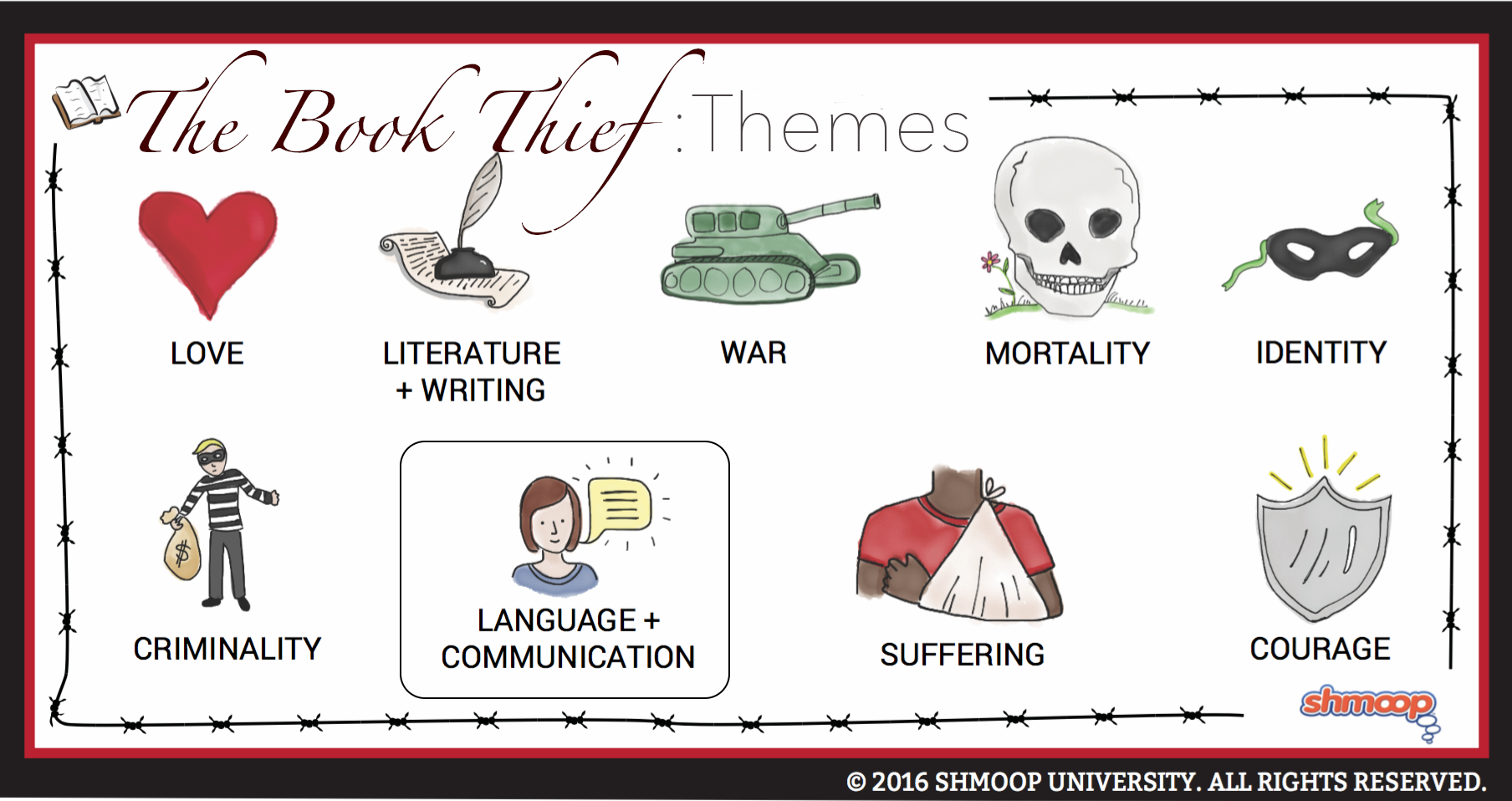 (Click the themes infographic to download.)
(Click the themes infographic to download.)
In many ways, Hitler's rise to power was made possible by... words. Hitler relied on mass communication technology to convey its message of hate and to mobilize a nation in its service. But, The Book Thief focuses on using language to heal, to save, and to fight against injustice.
It expresses a belief in the power of language to make a positive difference in the world. It recognizes the extreme power language contains. The novel shows us the very best and very worst ways language can be used.
Sprinkled with German words and phrases, the novel also helps us feel the friendliness and beauty that this language can embody. This is important because after World War II and the Holocaust, German was seen as a language of hate and fear. This book argues that it's not about the language you speak in, or even the words you use, but how you use those words that's important.

Questions About Language and Communication
- Why can't Liesel tell Rosa and Rudy the way she feels about them? Why is she more successful in communicating her feelings to Hans and Max?
- What do Ilsa Hermann's bathrobes communicate?
- Why does Rosa have such a drastic mode of communicating? Why does she become gentler?
- How do you see radio and newspapers being used in the novel?
- How would it feel to live in a place where there are constant sirens signaling air raids?
- What is the effect of the use of German in the book? Do the German words and passages make things confusing? Do they make the story feel more authentic? Why or why not?
Chew on This
Liesel's biggest failure is her failure to communicate her love to Rudy when he is alive.